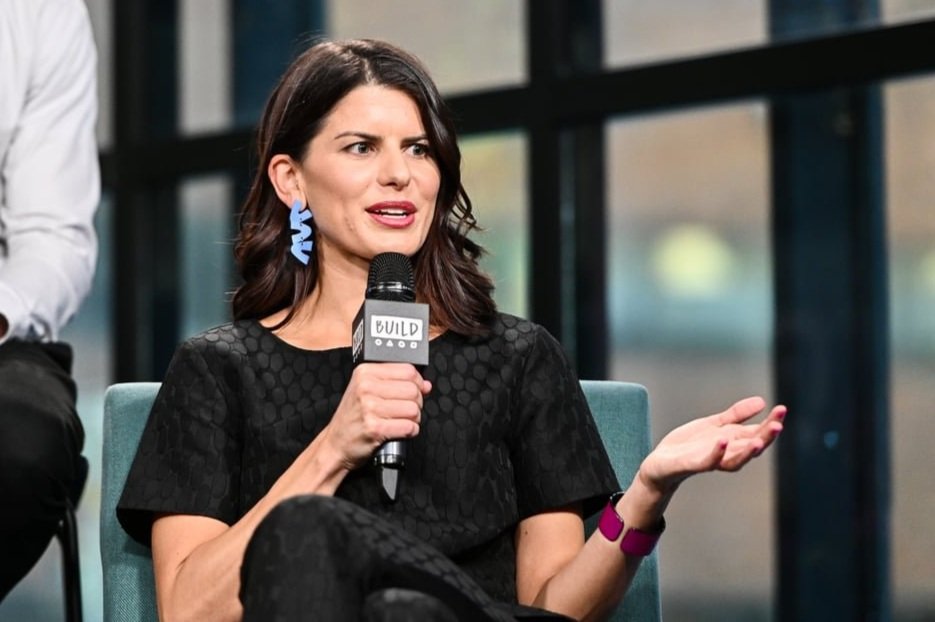Margaux Joffe
CPACC, BCCS
Media Kit
How to pronounce my name: mar-go jaw-fee (like coffee)
Pronouns: she/her/hers
Short Bio
Margaux Joffe is a global advocate for neurodiversity and accessibility. After a life-changing diagnosis of ADHD at age 29, she founded the Kaleidoscope Society to empower other women with ADHD and dispel stigma surrounding neurodiversity. Today she is a Board Certified Cognitive Specialist and Founder of Minds of All Kinds, a platform for neurodivergent individuals to learn, connect and lead.
Long Bio
Margaux Joffe (she/her) is a Board-Certified Cognitive Specialist and the founder of Minds of All Kinds, a platform empowering neurodivergent changemakers to learn, connect, and lead. As the creator of ADHD Navigators program, Margaux is passionate about helping others thrive with ADHD in their careers.
Formerly an award-winning producer, Margaux’s journey took a pivotal turn at age 29 when she was diagnosed with ADHD. To help other women who were struggling in silence, she created Kaleidoscope Society, the first of its kind content platform for women with ADHD, launched in 2015. Reaching thousands in over 100 countries, the platform was recognized by Teen Vogue for "Smashing ADHD Stigma for Women and Girls" and Margaux was named a “badass woman with ADHD” by PopSugar.
Margaux went on to tackle stigma in the workplace, leading disability inclusion initiatives at Yahoo and Verizon, where she launched the technology industry’s first Neurodiversity Employee Resource Group (ERG) — building a global peer support network across 35 offices in just two years. She also spearheaded the The Disability Collection, a landmark partnership with Getty Images and the National Disability Leadership Alliance to improve disability representation in the media.
As a sought-after speaker and consultant, she has worked with companies like Edelman, Dell, Hinge, GitHub and Intuit and spoken on global stages, including the United Nations, the World Health Organization and SXSW.
Margaux’s impactful work has been featured in Forbes, Fast Company, The Hollywood Reporter, Vogue and in books such as The Anti-Ableist Manifesto, Divergent Mind, A Hidden Force and Neurodiversity for Dummies. She has earned recognition from the United Nations Foundation, D&AD Impact Awards, the Webby Awards, and the Susan M. Daniels Disability Mentoring Hall of Fame. In 2023, LinkedIn recognized her as a “Top Voice” in disability advocacy.
Margaux is currently based in Seattle, Washington, the land of the Duwamish People. She has a BA from Duke University and is trained in documentary storytelling as a tool for social change. She is certified in Digital Accessibility, Cognitive Disabilities and Mental Health First Aid. She is proud to serve on the Board of Directors for the American Association of People with Disabilities.
In all her work, she is dedicated to creating a world where neurodivergent people are seen, valued, and thriving.
Links
Website: https://margauxjoffe.com
Linkedin: https://www.linkedin.com/in/margauxjoffe
Instagram: @MargauxJoffe @MindsofAllKinds @KaleidoscopeSociety
Minds of All Kinds: https://www.mindsofallkinds.com
ADHD Navigators Program: https://www.ADHDnavigators.com
Free ADHD Mini Course: https://mindsofallkinds.teachable.com/p/adhd-mini-course
Photos
Image description: Margaux smiles, resting right hand gently on chin. She wears an orange blouse and chunky gold rings.
Photo credit: Jordan Nicholson
Image description: Margaux smiles, standing in a white suit hands gently clasped in front of her. She wears gold earrings in the shape of a half sun and a delicate body chain visible on her neck. Behind her is a draped turquoise blue fabric.
Photo credit: Jordan Nicholson
Image description: Margaux with members of Yahoo / Verizon Media’s Neurodiversity Employee Resource Group (ERG) which she founded in 2017. Photo credit: Noam Galai.
Image description: Margaux speaking at Build Studios in New York City, wearing black textured shirt and pants, large blue earrings and holding a microphone. Photo courtesy of Build Studios
Tips for making your content or event accessible
Social Media content
Videos: Add captions to all video content. Include video descriptions and provide a transcript in the post or article. Avoid flashing lights or strobe effects.
Images: add alt text and write image descriptions.
Text: use 4.5:1 contrast ratio so your text is readable. (for example: dark text on light background)
Captions: Put hashtags in #camelCase or #PascalCase. Use emoji in moderation.
Event Accessibility
Plan with accessibility in mind: Plan your event knowing that people with different disabilities will be attending. Pick a platform that works well for everyone. Offer different ways to join, like calling in by phone. Allow people to request accommodations in advance and provide sign language interpreters if people need them.
Make info easy to understand: Share details about how to join the event in advance. Use simple words, large text, clear images, and easy-to-read instructions. Give people a way to ask for extra help if they need it.
Support people during the event: Make sure the sound is clear and everything being shown visually is also described verbally. Give breaks, speak clearly, and allow different ways for people to ask questions or join in.
Keep improving: After the event, ask for feedback. Keep learning and talking about accessibility, so all your events become more inclusive over time.
More on How to Make Your Virtual Meetings and Events Accessible to the Disability Community
Videoconferencing settings: Zoom Accessibility, Microsoft Teams Accessibility, Google Meet Accessibility
ASL Interpreters: ProBono ASL, Deafinitely Dope



